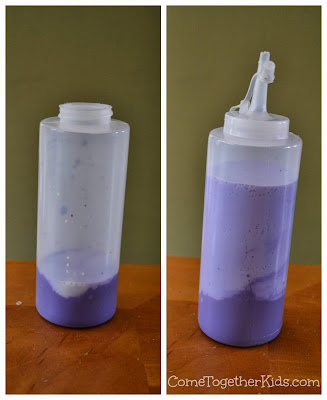This is a Sponsored post written by me on behalf of Frozen Food Foundation for SocialSpark. All opinions are 100% mine.
I don't know about you, but taking all three of my kids with me to the grocery store is one of my worst nightmares. When they were younger and I was staying home with them, the thought of loading everybody up in the car to go hit the aisles of the supermarket was like torture. Now that they're older, they still don't want to be stuck in the grocery store with me and their school and activity schedule, combined with my work schedule makes it just as tough to have to run to the supermarket all the time.
That's why my freezer comes in handy. I've learned that if I have what I need on hand, I can minimize those dreaded trips for last minute items. I'll make up a bunch of pancakes and french toast to have on hand for breakfasts. I'll buy meats and freeze them and even make up double batches of some of our main dishes so we can eat one and freeze the other. I always wondered about the frozen fruits or veggies, though. I knew it would be easier if I could keep the freezer stocked with those items too, but would they have the same nutritional value if frozen?

Luckily, this a recent study answered my question and helped put my mind at ease. A study conduced by the Frozen Food Foundation and University of Georgia tested a variety of fruits and vegetables most commonly purchased by families: broccoli, corn, strawberries, blueberries, etc. The researchers tested the produce under three different conditions: frozen, fresh (on the day of purchase) and fresh-stored (after five days in a home refrigerator). The study found that in many cases, the frozen foods retained more Vitamin A, Vitamin C, and folate than those which had been purchased fresh and stored for a few days before eating. Fruits and veggies consumed right from the fields are awesome, but when you factor in the time from the farm, to the store, to your dinner table, frozen foods often have the advantage. More details of the study (and other similar research) can be found by click on the link at the start of this paragraph or by visiting the Frozen Food Foundation Facebook page or the Frozen Food Foundation Twitter page.
A few of my favorite ways to use frozen fruits and veggies...
* frozen veggies and sides? right from the package as a quick and simple addition to our main dish

* frozen veggies? added to homemade soups and casseroles
* frozen chopped onions? They're just awesome. So much easier than chopping regular onions everytime you need them for a dish.
* frozen edamame? great in the kids' lunches. I just put a handful still frozen in their lunchbox and it's thawed by lunchtime.
* frozen meals? great for my lunches when I'm called in to sub at the last minute or when dinner plans unexpectedly change
* frozen fruit smoothies? great for an after-school snack. We take a handful of frozen fruit (strawberries, mixed berries, peaches, etc), add some lowfat milk and about half a packet of instant pudding mix. Blend until everything is combined. It's really yummy and the frozen fruits make it nice and chilled and the pudding mix makes it really creamy and sweet.

So there you go. If you were like me and were worried that frozen fruits and vegetables were not as nutritional as fresh, you can rest assured that in most cases, they are just as healthful and sometimes even more.


.jpeg)
.jpeg)













































